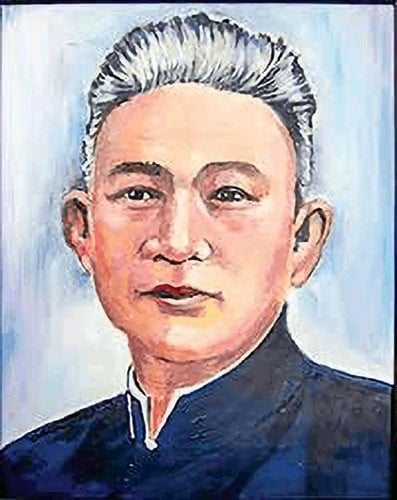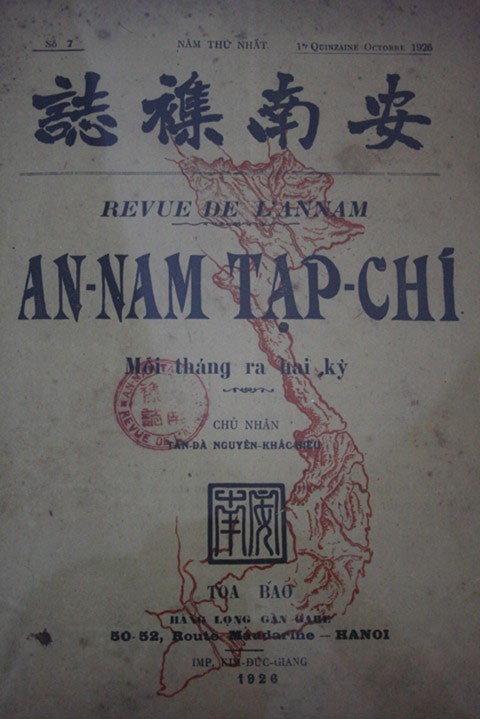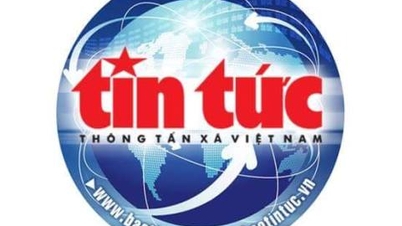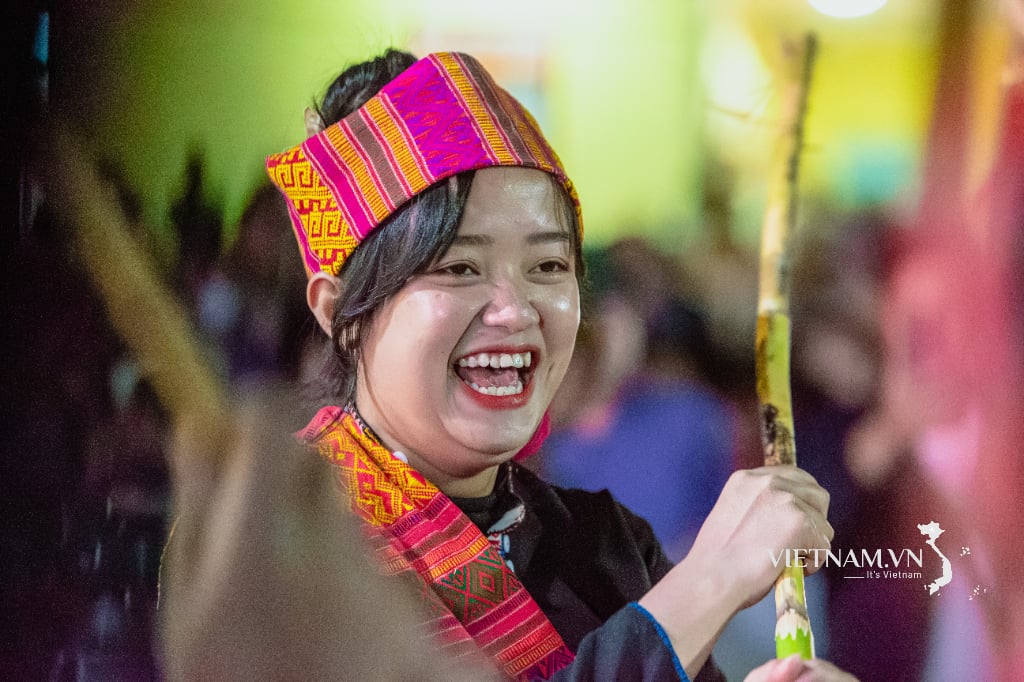A life of ups and downs, full of hardships, all because of the press.
In their book *Vietnamese Poets*, Hoai Thanh and Hoai Chan introduced Tan Da as the opening figure in the book's literary circle, calling his poetry "uniquely unrestrained," and "having played the prelude to a new and extraordinary concert about to begin." Both Hoai Thanh and Hoai Chan praised the style of someone navigating the chaos of Vietnamese society "with the serene heart of someone from a bygone era." Their rebelliousness was not borrowed from the past, and their melancholy was not mournful but rather manly.
That's the literary style of Tản Đà, but what about journalism? Tản Đà was the youngest son of this talented man and beautiful woman. His father was an official, also a refined and talented man, who married a beautiful and talented opera singer from Nam Định . It was this "talented man and beautiful woman" love affair that allowed Tản Đà to inherit his parents' refined and elegant nature.
According to records, in 1913, his eldest brother, Nguyen Tai Tich, who had raised Tan Da since he was three years old, passed away. Tan Da returned to Vinh Phu to work as a journalist. His first newspaper was the Indochina Magazine, edited by Nguyen Van Vinh, where he was in charge of the column "A Style of Nom Literature." In 1915, he married Nguyen Thi Tung, the daughter of a district magistrate in Ha Dong. That same year, he had a good work published in the Indochina Magazine, quickly gaining recognition in the literary world. In 1916, he adopted the pen name Tan Da, a combination of the names of Tan Mountain and Da River. The name Tan Da perfectly reflected his style and passion for "living a life of freedom and adventure": "The water ripples on the Da River, fish leap / Clouds cover Tan Mountain, kites fly!"
From then on, his career in journalism, literature, and leisure became legendary in the literary life of that time. The name Tan Da became so famous that newspaper owners always needed his articles. Pham Quynh founded the Nam Phong magazine (1917), and Tan Da's name appeared in this magazine from the very first issue. In 1918, Pham Quynh praised the book "Khoi Tinh Con I" and criticized "Giac Mong Con I," using both praise and criticism with biting words, turning Tan Da into a phenomenon in the literary world.
Archival photo. |
Tản Đà befriended a wealthy businessman, traveled extensively with him, and served as editor-in-chief of Hữu Thanh magazine for a time. In 1922, Tản Đà established Tản Đà Bookstore (later renamed Tản Đà Publishing House), his first independent publishing house. Many of his notable works were published at Tản Đà Bookstore, including: Tản Đà Tùng Văn (a collection of both poetry and prose, including the story "The Oath of Mountains and Rivers," 1922); "Stories of the World" volumes I and II (1922), "Trần Ai Tri Kỷ" (1924), "Quốc Sử Huấn Nông" (1924), and the collection "Thơ Tản Đà" (1925).
In 1926, Huu Thanh magazine ceased publication, and Tan Da launched the first issue of An Nam magazine with its editorial office on Hang Long Street. The birth of An Nam magazine, the newspaper to which Tan Da devoted all his heart, marked the beginning of a difficult period in his life.
In the early days of his ownership of An Nam magazine, Tan Da lived a carefree life, often traveling throughout the country. He balanced his work with his travels, resulting in irregular publication schedules. Gradually, he fell into financial hardship, and his trips became a way to escape debt, relieve stress, or find sponsors for the magazine. During this period, he wrote extensively, with the collections "Leisure Thoughts" (philosophical essays, 1929), "The Great Dream" (autobiography, 1929), "The Little Love III" (reprint of old poems), "Swearing by the Mountains and Rivers" (story), and "The Little Dream II" (story) being published successively.
In 1933, when the New Poetry movement was on the rise, Tan Da's An Nam magazine officially ceased publication after three suspensions and three reprints. Tan Da's life deteriorated drastically, and he had to scramble to make a living. The magazine only lasted for 48 issues.
While he was teaching classical Chinese in the Bach Mai area, he was also in Ha Dong, where he saw advertisements in newspapers: "Offering services for writing humorous and sad texts commonly used in society - Tan Da Nguyen Khac Hieu." In 1938, he even opened a Ha Lac numerology clinic to tell fortunes.
“For a hundred years, the name Tan Da has remained/As long as the rivers and mountains remain, so too will there be revelry/Whether good or bad, all things in life/Clouds drift and water flow, let the world decide.” These verses he wrote about the pleasures of life truly reflect his own character: “He had a homeland, but no home.” A life of wandering!
The press is used to "diagnose" social ills.
In his book "40 Years of Lying," Vu Bang emphasized the hardships of "true journalists who fight without needing praise or fearing criticism": "True journalists fight for the nation, for the future; when they have free time, they only sit and look back at the past, asking themselves if they are worthy of being called soldiers and to what extent... I imagine seeing my friends who spent their lives writing for newspapers, who suffered their whole lives like Tan Da, Van Sen, Vu Trong Phung, Lan Khai, Le Van Truong, Dinh Hung, now dead but still clinging to their pens to write articles in the afterlife."
I think Vu Bang's praise of Tan Da is accurate. It's a truly vivid "sketch" of Tan Da's portrait. Tan Da's journalism and literature are always thought-provoking, like a thorn in our foot that can't be removed, occasionally causing sharp pain. To remove it, surgery is needed for healing and recovery. That means treating the vices and flaws of individuals and society.
I read a very insightful piece by Tan Da that highlights the unhealthy prevalence of this vice in society, especially in large cities. The piece is titled "A Proclamation to Drive Away Beggars." The beggars here refer to street beggars, but now there are also "beggars on social media," such as those who solicit donations and then profit, or who feign poverty to gain sympathy. The proclamation offers a unique perspective; the author argues that beggars are simply lazy and unwilling to work. Tan Da quotes Mencius: "Giving to others can sometimes harm the act of kindness."
Researcher Vuong Tri Nhan commented: "Knowing that the things we are discussing today were already addressed by the poet of Tan Mountain and Da River more than half a century ago, we are even more convinced that we are not being heartless but are thinking correctly. Especially when the habit of using poverty as a pretext is still manifested in countless different actions, even those that outwardly have nothing to do with begging."
Vu Bang said about Tan Da's journalistic style: "...he was only concerned with meticulously crafting a single word in his poetry, drunk all day, completely oblivious to domestic and international affairs... I admire Tan Da for bringing such sublime beauty to the world of poetry in the journalistic world." Furthermore, Vu Bang criticized Tan Da's "bad habit" as "arrogance, treating everyone else like dirt!"
Tan Da was also acutely aware of the importance of combining literature and journalism. He demonstrated that a good journalist needs not only knowledge of current events but also a literary soul, patriotism, and the courage to critically analyze. He also praised the literary quality that beautifies and deepens journalistic language. Tan Da's writings carried a profound voice of social critique. He repeatedly criticized the colonial and feudal regimes, exposed social injustices, and condemned the backwardness, superstition, and conservatism of the official class. He used journalism as a tool to awaken public awareness and stir up patriotism… He also emphasized honesty and integrity in his writing. Tan Da was not afraid to clash with prominent contemporary writers if he deemed it necessary to defend truth and justice. This is a great lesson in professional ethics.
Speaking of Tan Da, I, as a later generation, dare not boast too much because he was simply too good: talented, passionate, and passionately devoted to his writing style to an "extreme" degree, yet that "extremeness" was so endearing. Without that "eccentricity," that unwavering composure, we wouldn't have Tan Da's pen in the literary and journalistic world. Between 1916 and 1939 alone, Tan Da left behind thousands of articles, over 30 volumes of poetry and prose, and numerous translations.
To conclude this article, I would like to borrow a quote from the book "Vietnamese Poets": "With you, sir, people will see clearly that we are not the aberrations of our time, the lost souls with no connection to the past of our race. With you, sir, on the literary stage, there still lingers a glimmer of peace in our faith, a glimmer of joy that we have long lost."
Tuan Ngoc
Source: https://baophapluat.vn/co-mot-tan-da-nha-bao-post552486.html



















































































































Comment (0)